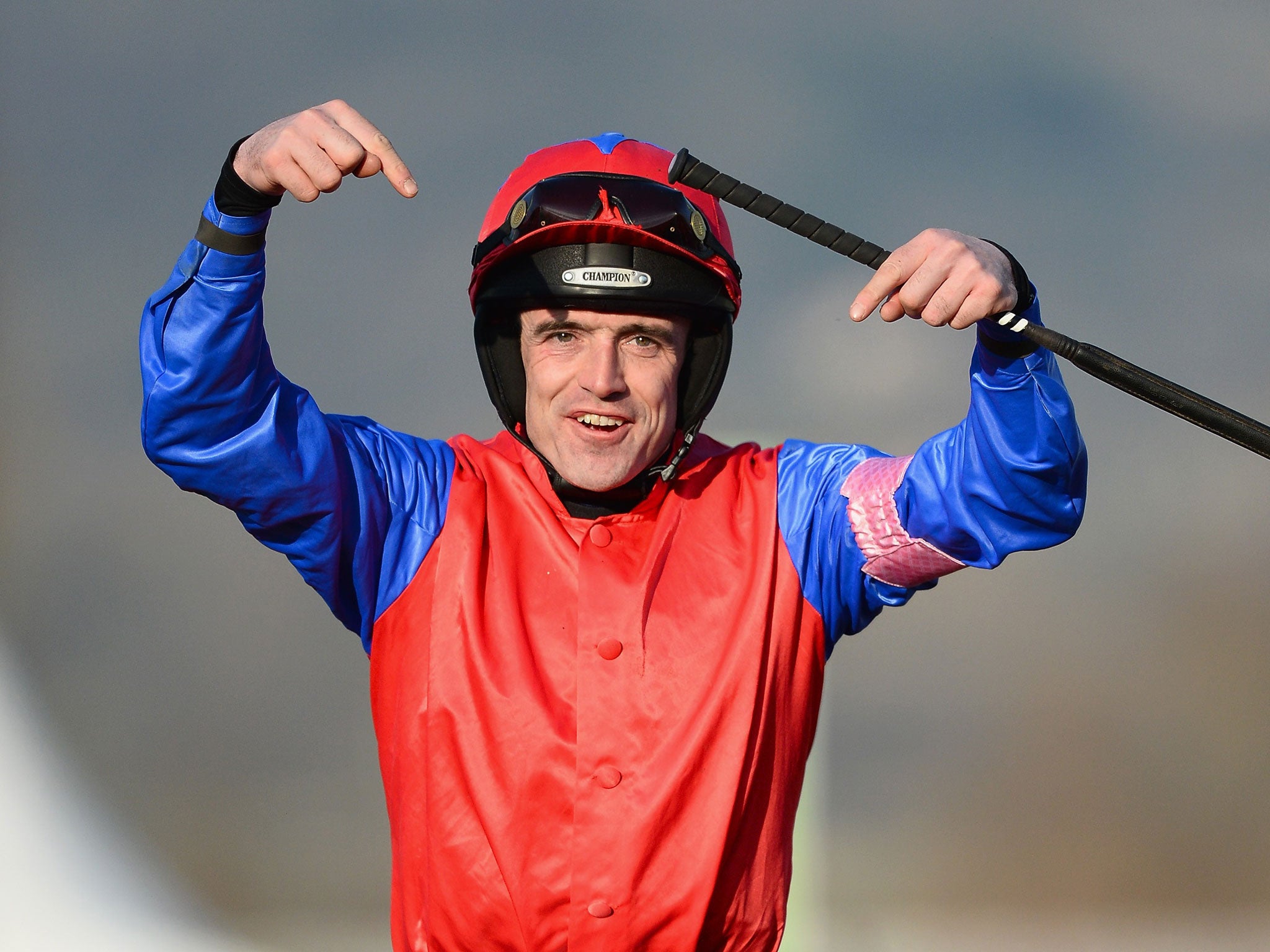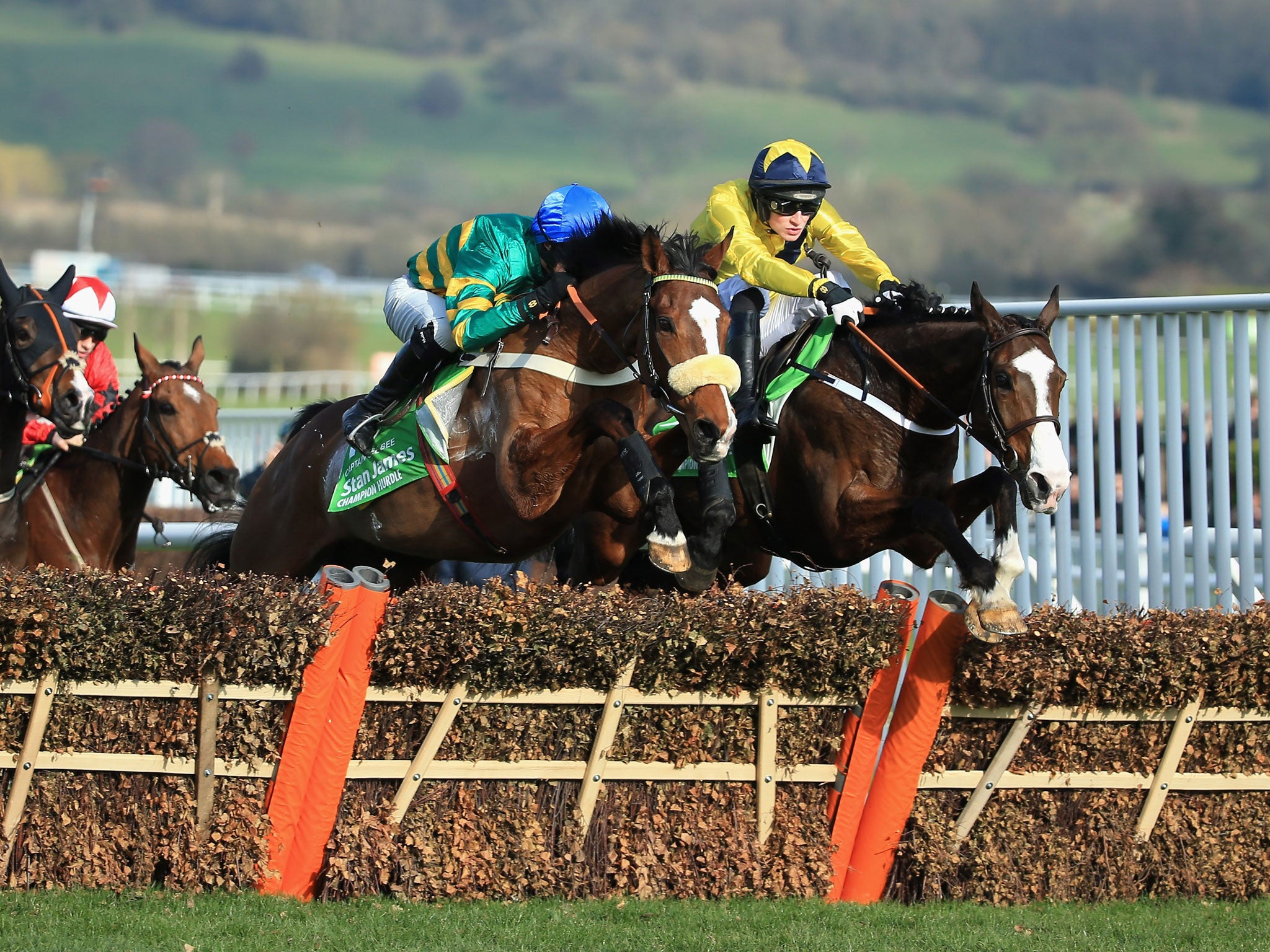Cheltenham Festival 2014: Jockey Ruby Walsh angers welfare groups by describing horses as 'replaceable'
Peta called the comments ‘deeply offensive to anyone who has ever loved and lost a horse’

Your support helps us to tell the story
From reproductive rights to climate change to Big Tech, The Independent is on the ground when the story is developing. Whether it's investigating the financials of Elon Musk's pro-Trump PAC or producing our latest documentary, 'The A Word', which shines a light on the American women fighting for reproductive rights, we know how important it is to parse out the facts from the messaging.
At such a critical moment in US history, we need reporters on the ground. Your donation allows us to keep sending journalists to speak to both sides of the story.
The Independent is trusted by Americans across the entire political spectrum. And unlike many other quality news outlets, we choose not to lock Americans out of our reporting and analysis with paywalls. We believe quality journalism should be available to everyone, paid for by those who can afford it.
Your support makes all the difference.The Grand National champion jockey Ruby Walsh has enraged animal welfare groups in the aftermath of a fatal fall at Cheltenham yesterday by describing horses as “replaceable”.
Our Conor, a five-year-old horse belonging to Dessie Hughes who was bought for £1 million in 2013, fell at the third jump of the Stan James Champion Hurdle. He sustained a back injury, was hidden behind screens by vets and put down.
Asked about the death of Our Conor and in the aftermath of his victory at the Supreme Novices’ Hurdle, Walsh said: “Horses are horses. You can replace a horse.”
He added: “It's sad, but horses are animals, outside your back door. Humans are humans. They are inside your back door.
“You can replace a horse. You can't replace a human being. That's my feeling on it.”
Walsh has said he was making a reference to the injury suffered by his weighing-room colleague Jason Maguire in a bad fall at Stratford, but animal welfare charities nonetheless described his comments as “deeply offensive”.
The comments sparked a furious response from a number of animal rights groups, but Walsh felt his view had been slightly misinterpreted.
He told the Alan Brazil Sports Breakfast on talkSPORT: "We look after horses like they're pets. There's a huge difference between your pet and your family. That's the point I was making.
"There's a big difference between you going home tonight and something's happened to your dog, and you go home tonight and something's happened to one of your kids. There's a huge difference.
"We look after horses like they are pets, and that's the feeling you get when something goes wrong. At the end of the day, it's still your pet. It ain't your son, your daughter, your brother, your sister."
Ingrid E Newkirk, the founder of People for the Ethical Treatment of Animals (Peta), said: “Walsh's comments expose the true emotion behind horse racing – greed.
“They are deeply offensive to anyone who has ever loved and lost a horse or other beloved animal companion.

“Every year, hundreds of horses come a cropper and die on British racetracks, only to be casually discarded. Thousands more are turned into dog food when they stop winning. Walsh needs reminding that it wasn't so long ago that people used to deride his fellow countrymen using the same sort of ignorant language, and he'd do well to think a little harder and apologise for his comments.”
The organisation Animal Aid said the death of Our Conor was the latest example of the hazards involved with what it said is the “most lethal racecourse in the country”. Its figures suggest 48 horses have died at Cheltenham since March 2007, more than at any other course.
The British Horseracing Authority nonetheless underlined its commitment to horse welfare and pointed out an improvement in equine fatality statistics.
Spokesman Robin Mounsey said: “Everyone in the sport of racing regrets the loss of a horse, especially those who are close to the horses in question. The welfare of horses and riders is of paramount importance.
“British racing is open and transparent about the risks involved to both horse and rider. Over the last 15 years, the equine fatality rate in British racing has fallen by one-third, from 0.3 per cent to 0.2 per cent of runners.”
Join our commenting forum
Join thought-provoking conversations, follow other Independent readers and see their replies
Comments